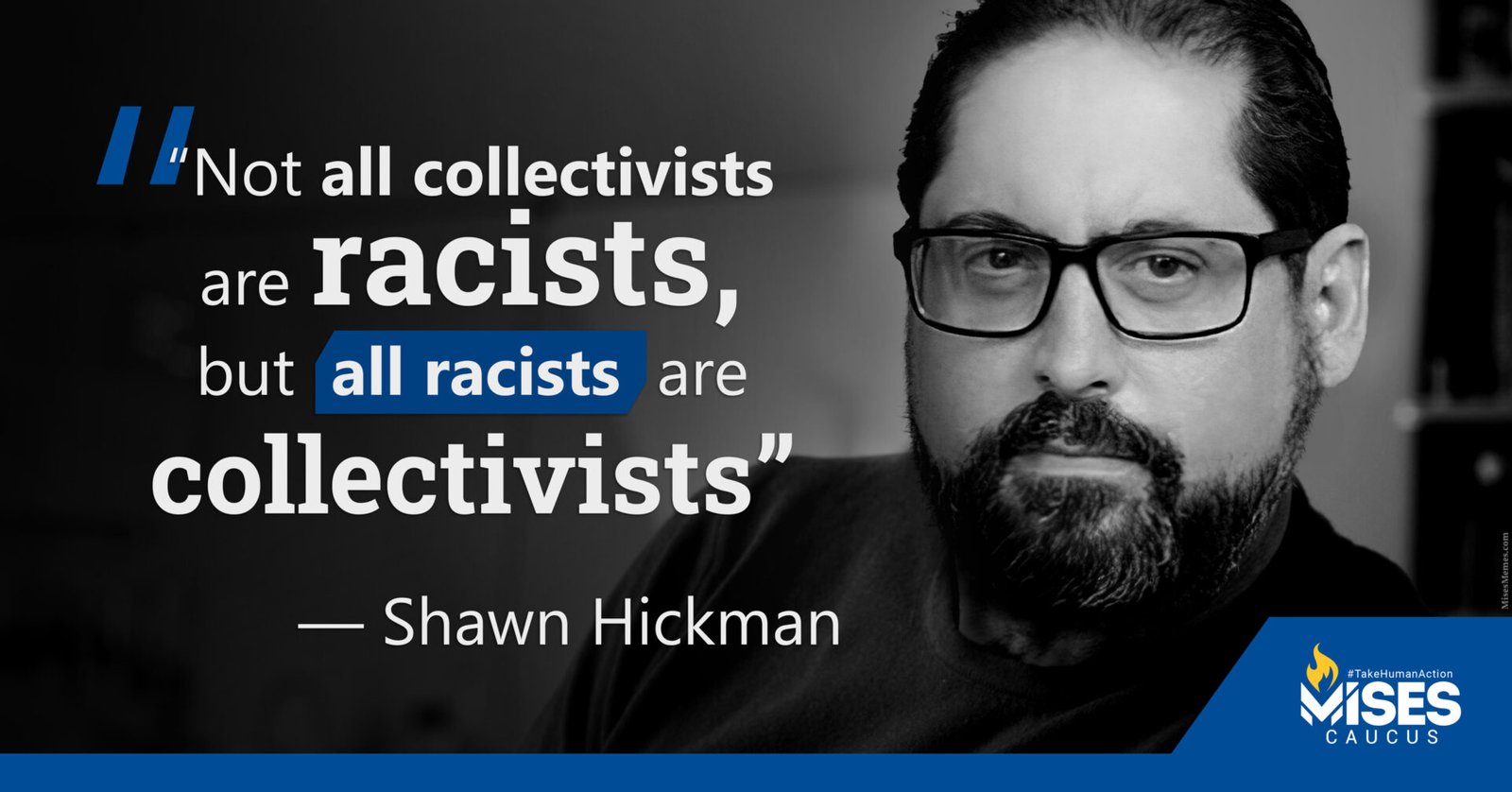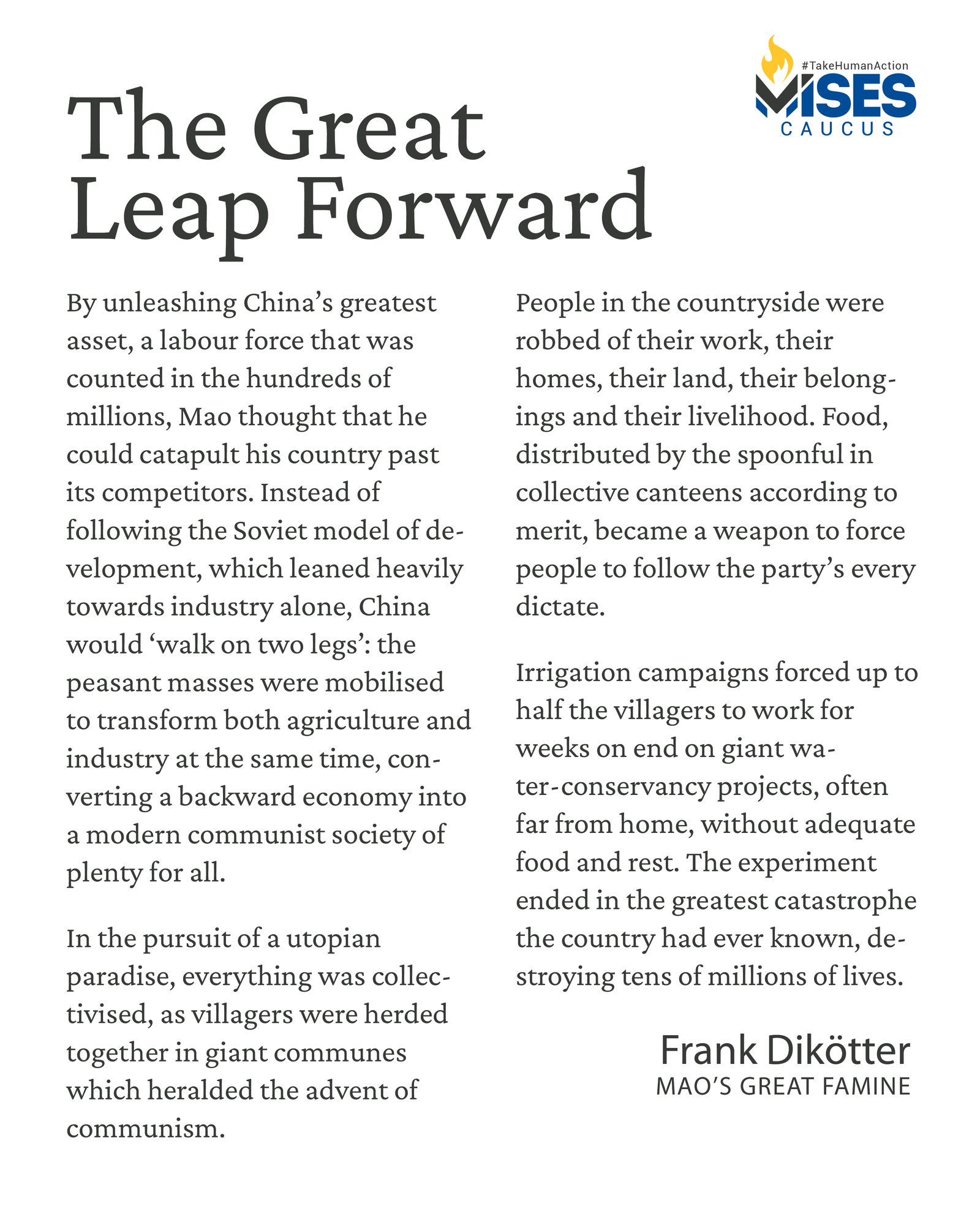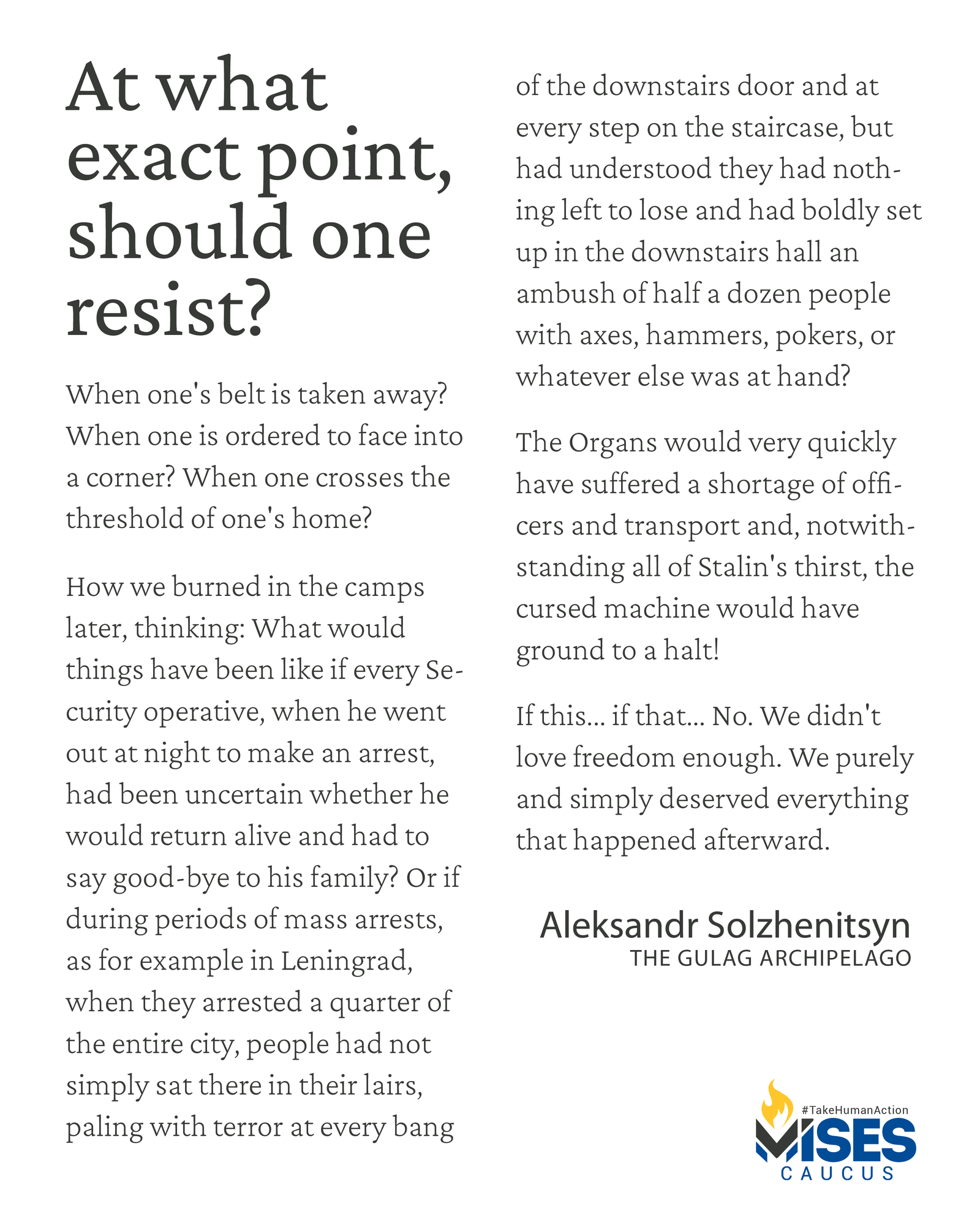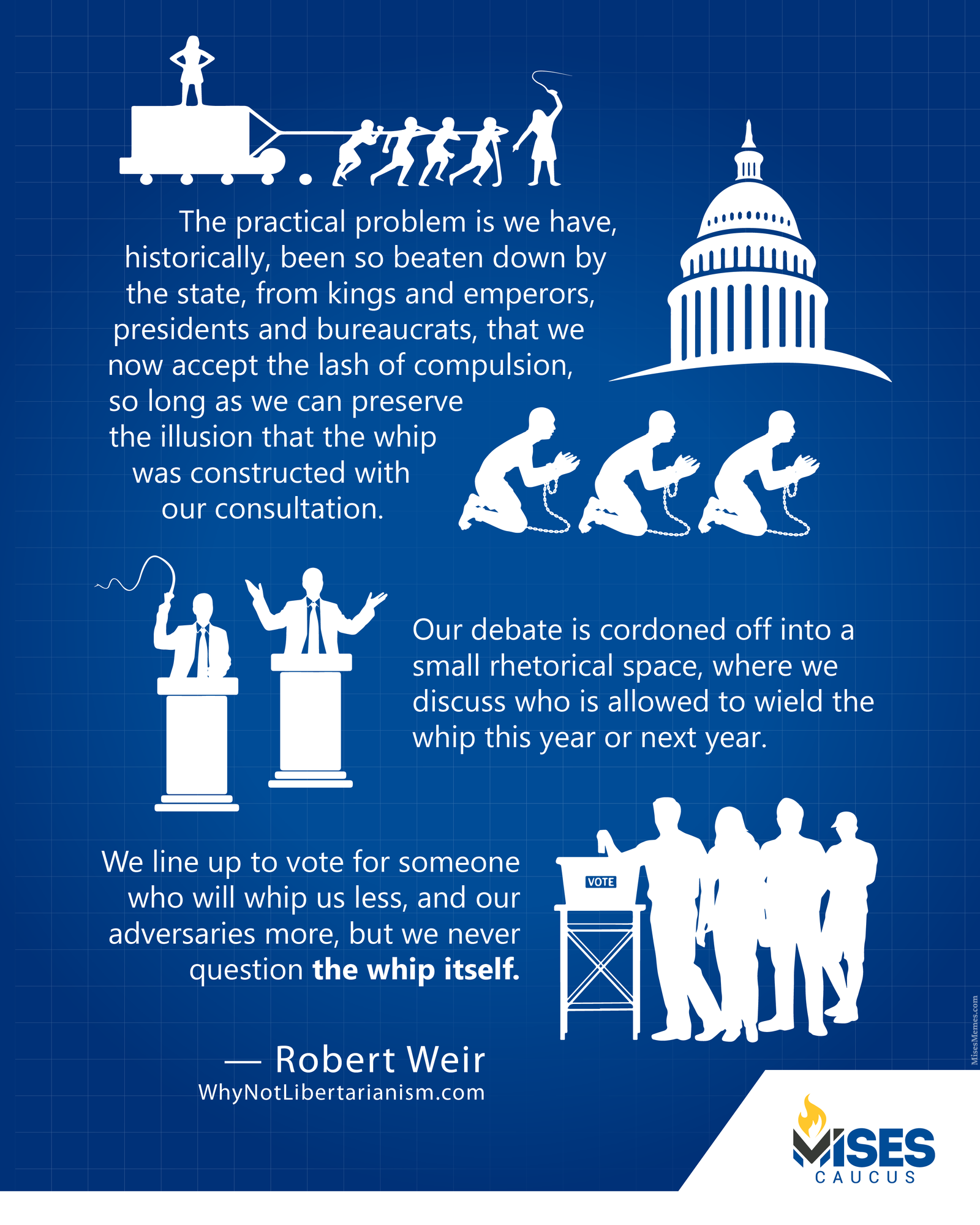Many on the political left are so entranced by the beauty of their vision that they cannot see the ugly reality they are creating in the real world. —Thomas Sowell


Many on the political left are so entranced by the beauty of their vision that they cannot see the ugly reality they are creating in the real world. —Thomas Sowell

Not all collectivists are racists, but all racists are collectivists. —Shawn Hickman

“Planning” in political rhetoric is the government’s suppression of other people’s plans by superimposing on them a collective plan, created by third parties, armed with the power of government and exempted from paying the costs that these collective plans impose on others. —Thomas Sowell




It isn’t a coincidence that governments everywhere want to educate children. If the government’s propaganda can take root as children grow up, those kids will be no threat to the state apparatus — they’ll fasten the chains to their own ankles. —Lew Rockwell

A lie doesn’t become truth, wrong doesn’t become right, and evil doesn’t become good, just because it’s accepted by a majority. —Booker T. Washington

Libertarianism is rejected by the modern Left, which preaches individualism but practices collectivism. Capitalism is rejected by the modern Right, which preaches enterprise but practices protectionism. —Karl Hess (The Death of Politics)

The practical problem is we have, historically, been so beaten down by the state, from kings and emperors, presidents and bureaucrats, that we now accept the lash of compulsion, so long as we can preserve the illusion that the whip was constructed with our consultation. Our debate is cordoned off into a small rhetorical space, where we discuss who is allowed to wield the whip this year or next year. We line up to vote for someone who will whip us less, and our adversaries more, but we never question the whip itself. —Robert Weir (WhyNotLibertarianism.com)
The practical problem is we have, historically, been so beaten down by the state, from kings and emperors, presidents and bureaucrats, that we now accept the lash of compulsion, so long as we can preserve the illusion that the whip was constructed with our consultation. Our debate is cordoned off into a small rhetorical space, where we discuss who is allowed to wield the whip this year or next year. We line up to vote for someone who will whip us less, and our adversaries more, but we never question the whip itself. —Robert Weir (WhyNotLibertarianism.com)